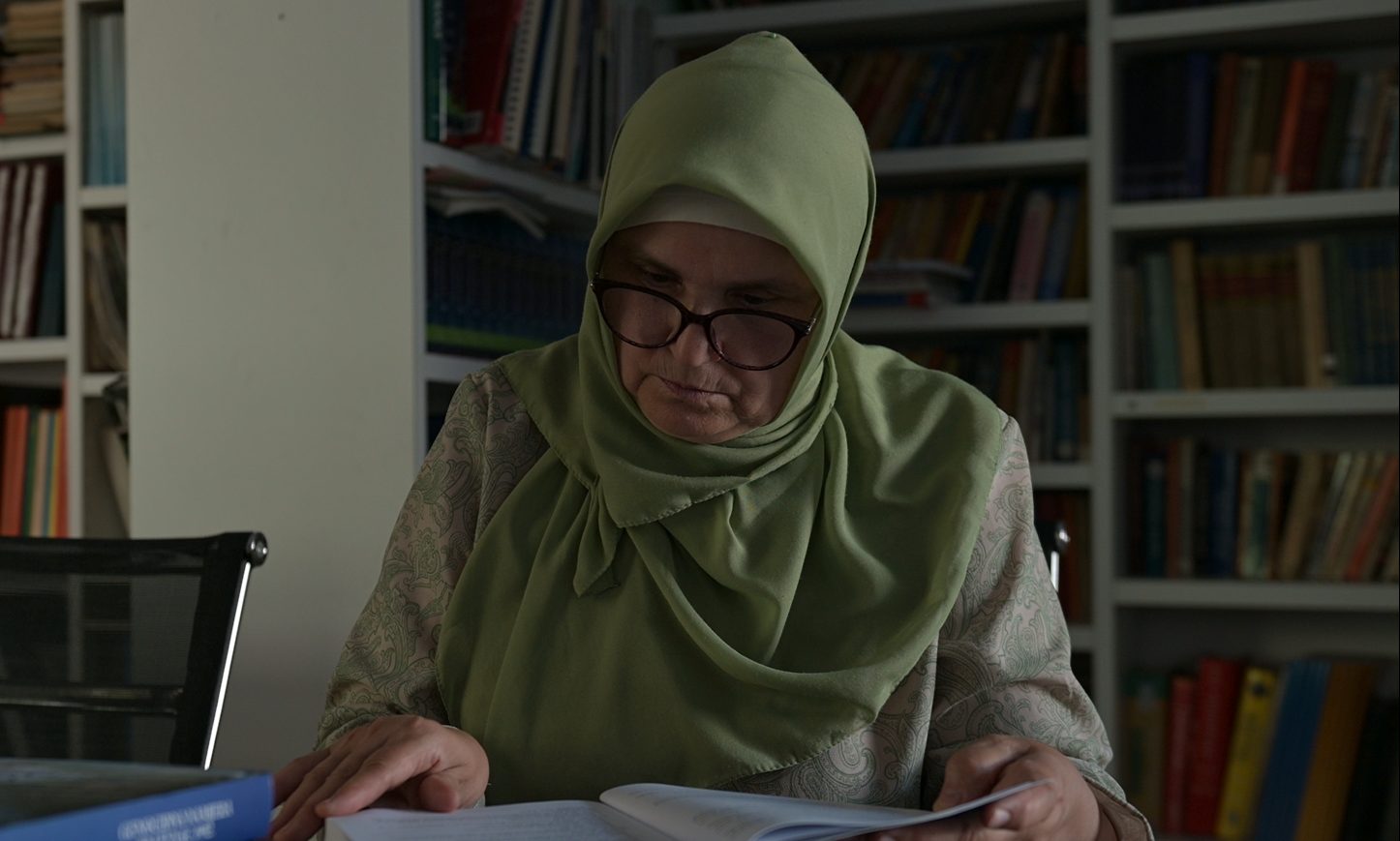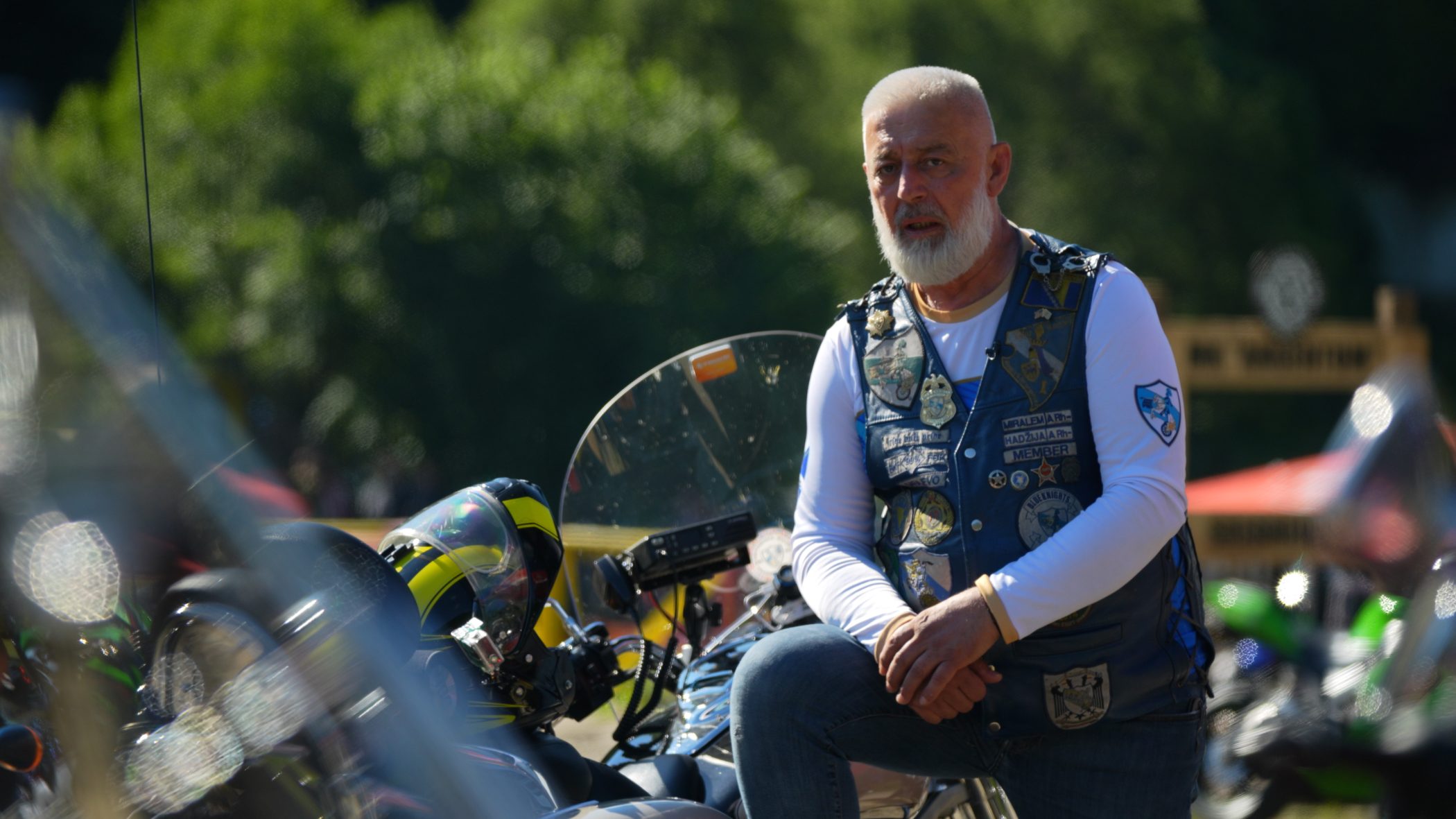This post is also available in: Bosnian
The village of Osve, ten kilometres west of the central Bosnian town of Maglaj, does not look like a threatening place.
It is very small for one thing – no more than 20 standing homes – and an equal number of ruined ones – scattered along a winding mud road.
Apart from a few homes belonging to Serb returnees, the rest all belong to Muslim families, representing a regular balance in a Bosnian village in this part of the country.
However, both local and international security agencies have marked down Osve as a threat.
This is because members of the hard-line Muslim Salafi movement have bought several homes and set up a closed community. Some have also gone to fight in Syria and Iraq in recent years.
One home in the village lives belongs to Amir Kavazovic, 42, who was born 20 kilometres away in the village of Gornji Pridjel, near Doboj.
Sporting the customary long beard and short trousers of the Salafi menfolk, he lives in the small house with his wife, his children and another family.
“I came because the land is cheap. I got some funds,” Kavazovic says, declining to divulge how much he spent on his part of the formerly destroyed house and around 300 square metres of land.
He lives off of agriculture and has some cows.
Kavazovic frowns and raises his voice when asked if he ever got money for choosing to live as a Salafi.
“Have the people who say things like that ever came to look in my fridge? No… Maybe my fridge is empty and I have no food,” he says, mysteriously.
Kavazovic says the fighting in Syria or Iraq are of no interest to him, and he refuses to speak about some others from the village who went off to fight in the Middle East.
“The authorities know. They are the ones letting them go to the airports and giving them passports,” he says.
“I am not the one organizing their trips. I do not plan to go and this does not concern me,” Kavazovic adds.
Fighters in Middle East:
Emrah Fojnica lived in Osve before going off to fight in Iraq where he was killed in mid-2014.
The Bosnian authorities charged him and gunman Mevlid Jasarevic with the terrorist attack on the US Embassy in Sarajevo in 2011, but he was acquitted.
Some of his relatives still live in the village but they refuse to speak to journalists.
Bosnia’s State Investigation and Protection Agency, SIPA, confirmed to BIRN that they are tracking several villagers in Osve.
The village is of “security interest in regard to violent extremism and radicalism, which can lead to terrorist acts,” one staffer said.
Kavazovic and other villagers say the police visit the village daily and they often see SIPA vehicles lurking around.
One of Kavazovic’s immediate neighbours does not have a beard. Blagoja Vidovic is one of a handful of Serbs, from a much bigger prewar community of 140, who returned after the 1992-5 war in Bosnia ended.
Vidovic is disappointed that so many Serbs sold their homes to Salafis. His former neighbours now live in Doboj, Brod and Teslic, all towns in the Bosnian Serb-majority entity, Republika Srpska.
“They like to walk on pavements and they don’t want to work the land,” Vidovic laments.
However, Vidovic does not complain about the devout Muslims who have decided to move to Osve.
“They welcome me. When the floods hit the Maglaj region, they brought me food. When it’s Eid, they bring me meat from the slaughtered animals,” Vidovic observes.
During several hours spent in the lanes of Osve, only men with long beards and short trousers could be seen. Many wear military jackets or pants.
Few women can be seen outside. Those that pass along with their children hurry past strangers. They are entirely covered, their faces hidden under a scarf.
A group of the Salafis gathers in front of the local prayer hall on Friday at noon.
The prayer takes place in a house with speakers on the roof. It is not a mosque or a place of worship officially recognized by the Bosnian Islamic Community. The roof next to the building has a broken pole on which a black flag with white Arabic letters, reminiscent of the flag of Islamic State, ISIS, can be seen.
Men enter the main entrance of the building for the service, while women enter through the side.
Just want to live a life of prayer:
The prayer is led by 28-year-old Selvedin Dzanic, born in Oruc, a Bosniak village next to Osve.
“I did not go to the Medresa to become an Imam, I learnt from the holy books,” Dzanic says, explaining his lack of formal qualifications.
He still lives in Oruc but plans to move to Osve soon, as soon as work on his house is completed. Dzanic lives off agriculture and sometimes works as a plumber.
Asked about the image of Salafis as a potential threat to Bosnia, he says it is nonsense.
“We only want to live an Islamic life, without conflict with anyone,” he says. “We want to truly practice Islam, to live Islam, to live a live a life of prayer.”
Islamic officials don’t agree. In January, the Islamic Community in Bosnia and Herzegovina issued a statement saying that within two months, all places of Muslim worship not recognized by the organization must close.
Dzanic hopes it will not come to this. “I think we will solve this issue through dialogue and we won’t have any problems”, he says.
He does not want to talk to a camera, however, nor do any of the other members of the community.
After finishing their Friday prayers, several push up against the cameramen, demanding not to be filmed, recorded or quoted.
“Every time journalists come, they present us as animals or savages and then we see more police raids in the village,” one of them says angrily, refusing to give his name.
After a short discussion, they ask journalists to leave, if their work is done. “This place is ours alone,” one of them concludes.

